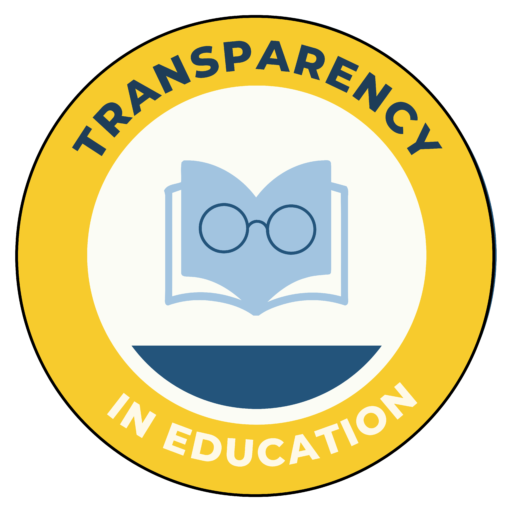What Parents Need To Know About the Status of Gender Identity Lessons in FCPS Elementary Schools
September 5, 2022
The course framework presented to Maryland school districts by the state department of education (MSDE) and approved by the BOE specifies standards for the introduction of gender identity and gender expression into the elementary school Health programs. It was approved unanimously by the BOE in April, and is part of the Family Life and Human Sexuality course category. The topic of gender identity is subtly introduced in K-3 in the language of the standards (one of the first grade standards is “Identify ways to treat people of all gender identities and expressions with dignity and respect”). As recently as last week, in response to parents who don’t want this topic introduced in early education, the FCPS stated, “there will not be lessons that instruct students on identity and gender expression”, but if the standards are followed the language used will make it impossible for the concepts not to be introduced. Additionally teachers in FCPS have a good deal of discretion and flexibility when introducing materials into the classroom, and there are already 14 elementary school libraries that contain gender identity books specifically targeted at young children (see below under “The Status”) so the chance that this topic is already being discussed in certain classrooms is high.
Parents should also be aware there are policies in place in FCPS that outline how parents can be prohibited from knowing if their child chooses a new pronoun or to be transgender (these policies were discussed in a previous article on our website). Keep in mind these policies exist in an environment where schools in Maryland are being asked by the state to be the ones to introduce the concept.
This is a watershed moment for FCPS and parents with children in the public schools need transparency into where it stands, so please take the time to read through the article.
There are two glaring disconnects between the parents/community and the BOE which are important to note.
The first is a significant misconception about the majority of parents opposing the introduction of gender identity into the school lessons. Over the last 5 months I’ve learned that if you oppose introducing gender identity concepts to children elementary school you are not a hater and your not “stuck in the 1970s” as a BOE member said to the public earlier this year. Instead I’ve found the common thread amongst those in opposition is the belief the school system has stepped beyond its role as the primary academic educator, instead taking it upon themselves to introduce and lead the discussion on gender identity with or without the parents’ involvement.
Second, the BOE responses to the public indicate that they believe that parents who don’t believe gender expression should be taught in public schools are rejecting the acceptance of gender identity confusion (dysphoria) in total as a valid condition*. There may be a small number of those in opposition that reject the notion the gender dysphoria is real, but the overwhelming majority are rightly stating that the impacts of the early introduction and acceptance of the concept to children is still far from settled and it’s easy to teach acceptance and tolerance to children and assist children with possible gender dysphoria without ever introducing it into the elementary school classrooms as a concept.
It’s clear that there is a problem in communication and collaboration that has existed from the start on this topic. The community engagement for this topic should not have been handled through the existing routines and communications. These processes are inadequate for such a sensitive and volatile issue and whether intentional or not these processes allowed the FCPS to essentially bypass parents and proceed with what they believe is the best course of action. Simultaneously, the FCPS is maintaining policies that would restrict parents from knowing what is happening if a child expresses behaviors inconsistent with traditional biological gender or indicates some level of gender confusion. See the article on improving the communication and transparency and parental empowerment for more on this in the “Case in Point” section of article on improving parental empowerment by clicking here.
*Members of the BOE have stated that Frederick County parents support this change, but I’ve sat in BOE meetings when the parents express their strong opposition to introducing gender identity concepts to elementary schools only to be told by BOE members that they don’t have their facts straight or are not seeing the bigger picture. Members of the BOE have quoted organizations like the American Academy of Pediatrics (AAP) as supporting the concepts in the framework (The AAP, also advocates for a child’s independent right to gender transformation therapies like puberty blockers and hormonal therapies so I would not consider them an impartial source), expressed disappointment in the mentality of those that oppose it (e.g., Karen Yoho’s comment that she feels “like we’re stuck in the ‘70s”), and characterized the public opposition as one that wants to silence all discussion about gender dysphoria, which, in addition to being a mischaracterization, inflames the situation and further divides the community and the FCPS.
The Status:
In prior articles published over the last 2 months on this site we provided information on this topic in an attempt to educate parents on where FCPS stands now and where it is headed. Here is a recap of those points with links to the original articles:
- At least 14 elementary school libraries in FCPS contain gender identification books geared towards young children and designed to explain gender choice, and that some controversial material within all libraries on this topic is downloadable by any student. This reinforces our position that it isn’t possible for the FCPS to monitor all teacher classroom activity and the topic likely has been in discussion in at least some elementary school classrooms much longer than the approval of the new standards. For more on this see our article on this website titled The FCPS online library search tool and what we found on gender identity.
- The parental notification policies do not always require teachers to notify parents of the topics they introduce in classrooms nor the materials they use. For more on this see our article on this website titled A report on what parents should know about parental consent policies.
- The FCPS has policies in place that allow teachers and staff to hold back information from parents that their children have chosen to be transgender. The school system does not tell parents if their child claims to be transgender or choose a pronoun and/or gender different than his or her biological sex if the child doesn’t want the family to know. Keep in mind that the FCPS is the one introducing the topic and supporting the student’s choice.
If your child makes a decision the family doesn’t support the school (per policy)considers you “non supportive” and is prohibited by the policy from telling you about what their child is choosing.
With these policies, if you are a parent that believes the topic and management of gender confusion (dysphoria) should take place at home you no longer have that choice.
- Opt-out Provisions. The school system has offered to include opt-out provisions for the gender identity lessons in elementary classrooms. Opt-out provisions are an ineffective solution for parents who believe the subject does not belong in elementary school classrooms. Opt-outs are not a compromise. Opt-out provisions serve to placate those in opposition while allowing those offering them (the BOE/FCPS) to move ahead with what they believe should be done. See the article on our meeting with Dr. Kevin Cuppett on this website for more on this.
- The BOE unanimously supports the framework that introduces gender identity in elementary schools. This past April the BOE unanimously voted to adopt the COMAR standards that contain the introduction of gender Identity to K-3 classrooms, applying policy 443 (Creating welcoming and affirming schools for transgender and gender nonconforming students) as a basis for justification.
- The Maryland Teachers Union (MSEA) supports gender identity in elementary education. The MSEA, a part of the largest national teachers union (NEA), supports the introduction of gender into elementary schools and earlier this year supported the NEA in a Drag Queen reading day at libraries for children. They strongly advocate that equity and social learning should be the “cornerstone” of their funding efforts. They actively search for and fund and support candidates that agree with these positions across the state. For more on this see our expanded article on the MSEA added this month on this website.

